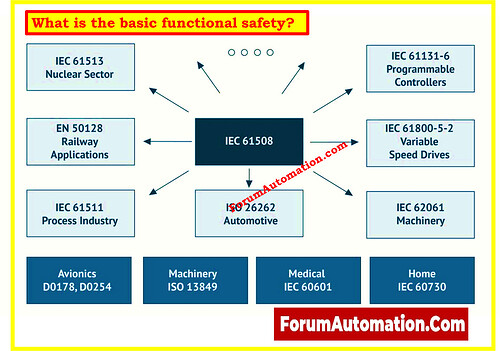What is the basic functional safety?
What is Functional Safety?
Automatic protection functions are a key part of functional safety, which is a key part of total system safety. It makes ensuring that the system reacts correctly when a dangerous situation happens to keep people, the environment, or equipment safe. Functional safety is different from basic safety measures like warning signs and protective barriers. It looks at how electronic, electrical, and programmed systems act in both normal and abnormal situations.
Functional safety basically means that:
- A safety-related system reacts correctly to what it gets.
- Failures, whether they be hardware, software, or human mistakes, are handled in a safe and predictable way.
- Safety functions lower risks to a level that is acceptable.
Why is Functional Safety Important?
Automation and software-controlled systems are very important to modern businesses, including autos, railroads, medical gadgets, and nuclear facilities. If these systems stop working, the results can be bad, causing injuries, damage to the environment, or loss of money. Functional safety lowers these hazards by making sure that safety functions work well, even when they are under stress or not working at all.
Functional Safety Standards
International standards set the rules for how functional safety should be put in place and checked to make sure it works the same way every time. IEC 61508 is the main standard, and it uses Safety Integrity Levels (SIL 1–4) to quantify how much risk is reduced. IEC 61508 has led to the creation of standards for certain industries, such as:
- ISO 26262 (for cars, with ASIL A–D)
- EN 50128 (for railroads, with SSIL 0–4)
- IEC 62304 (medical equipment, having risk classes A–C)
- IEC 62061 (SIL-based machinery)
- IEC 60880 (nuclear power systems)
These standards explain how to do risk assessments, design systems, create software, and check and test them.
Compliance and Certification
To be called “functionally safe,” a product or system must meet the standards set by the industry. Independent organizations like TÜV or Exida normally do the certification. They make sure that safety standards are satisfied.
Functional safety is about more than just technology; it’s also about trust. Functional safety keeps people, property, and the environment safe in a world that is becoming more automated by making sure that safety measures work properly in both planned and unplanned situations.
